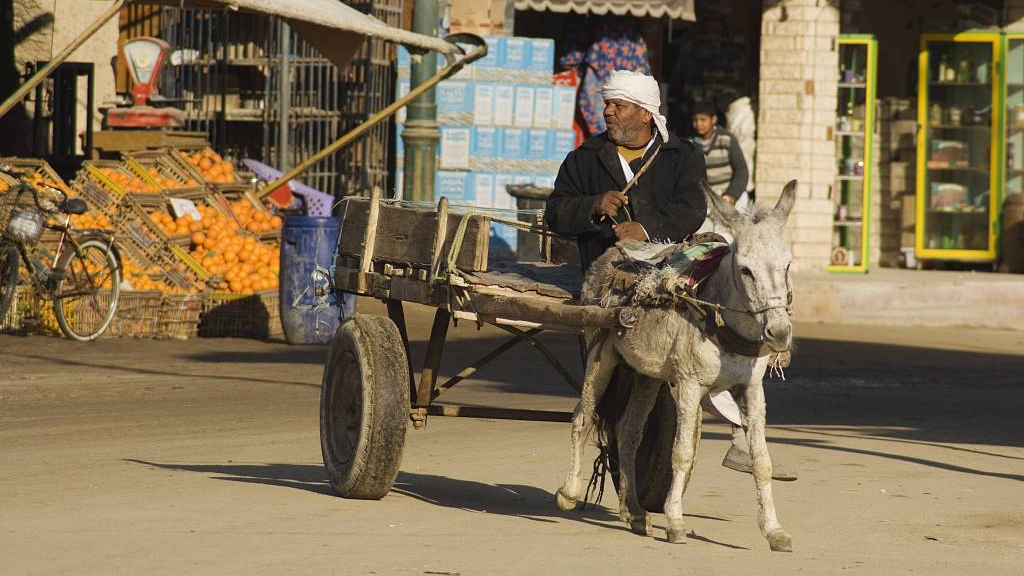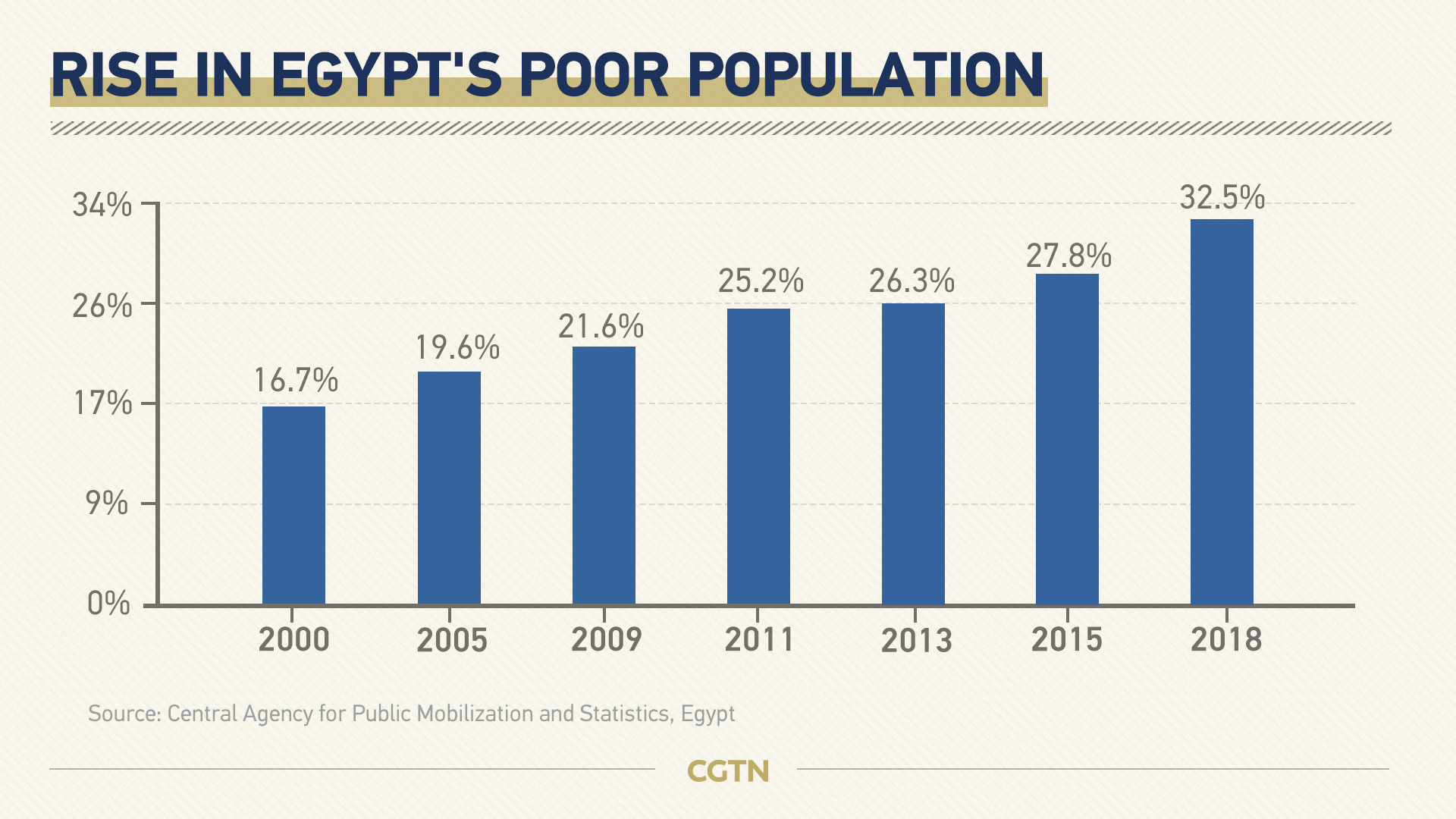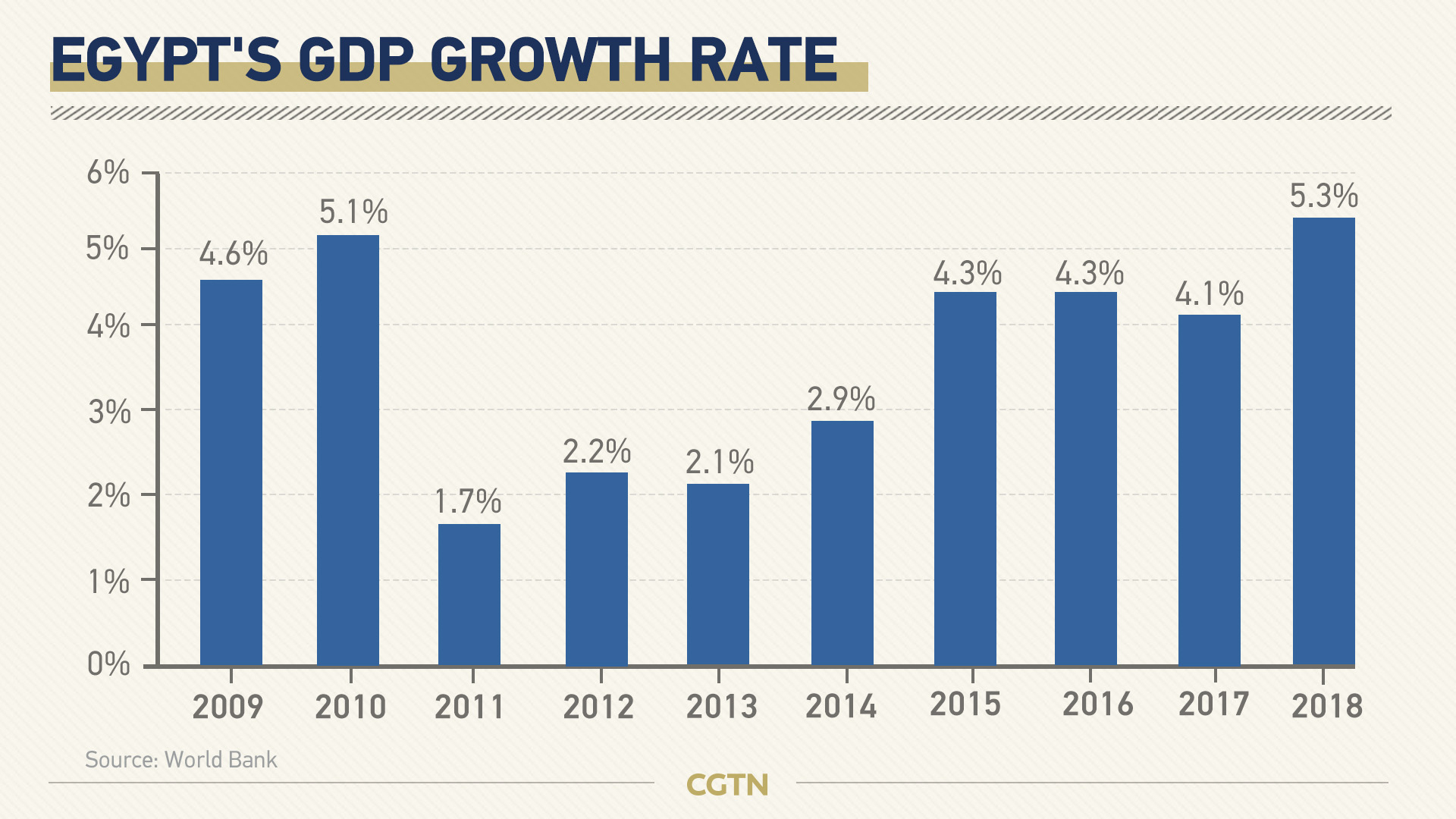

An Egyptian man rides a donkey cart on the streets of Siwa Oasis in western Egypt. /VCG Photo
Egypt has been lauded as the fastest-growing economy in the Middle East in recent years, yet curiously the country has seen a significant rise in poverty during the same period, according to latest data.
The paradoxical data has prompted analysts to speculate on the implications of soaring poverty, which, some feel, may pose a threat to the economic stability of the country that is seeking to rebuild itself after years of unrest following the 2011 uprising.
Egypt's gross domestic product (GDP) growth rate, which hit a low of 1.7 percent in 2011 and remained under three percent till 2014, steadied around 4.3 percent between 2015 and 2017, and posted its best figures of 5.3 in a decade in 2018, according to World Bank data.
In its April economic update for Egypt, the World Bank stated that the country's "economic growth has been robust… and is expected to reach six percent in the medium term".
The International Monetary Fund (IMF), which also provided a 12 billion U.S. dollar bailout package to Egypt's in 2016, has also lauded its macroeconomic progress in recent years.
Yet, latest government data revealed that poverty has constantly climbed despite the apparent growth, with one in three Egyptians currently living below the poverty line. This, even after the Egyptian government vowed last year to reduce poverty by 50 percent by 2020 and eliminate it completely by 2030.
Recent figures released by Egypt's official Central Agency for Public Mobilization and Statistics showed that 32.5 percent Egyptians lived in poverty in 2018, up from 27.8 percent in 2015 and 16.7% in 2000. In actual terms, this means over 32 million of Egypt's total population of 99 million are classified as poor.
The official data also showed that 6.2 percent Egyptians lived in extreme poverty in 2018, up from 5.3 percent in 2015. The poverty line is set around 1.45 U.S. dollars per day while the extreme poverty line at less than a dollar a day.
'Unsustainable trend'

Puzzled by the conflicting GDP and poverty figures, analysts say this effectively creates doubts over the government's economic reforms and the quantum of benefit that has trickled down to those in the lower economic strata. The situation has also prompted worrying questions of whether Egypt is heading towards another uprising.
"This phenomenon of rising poverty amid high growth is reminiscent of the situation just before the uprising in 2011, when Egypt had witnessed historical levels of growth concurrent with rapidly increasing levels of impoverishment," Osama Diab, a researcher in the economic and social justice unit at the Egyptian Initiative for Personal Rights was quoted by Carnegie Middle East Center in its regular survey of expert on the topic.
"The continuation of the 'increasing wealth amid increasing poverty' trend only means that now the economy is larger and poverty is more acute than was the case on the eve of January 25, 2011 (when the uprising began)," he added.
While stressing that the situation isn't as alarming as to trigger yet another uprising, Diab still agreed that the trend is unsustainable in the long run. "This does not necessarily mean that another uprising is imminent, not least because there are endless other variables that could affect the unfolding of events. However, what is certain is that this trend is politically, socially, and economically unsustainable."
Egyptian journalist Beesan Kassab, speaking to the Carnegie Middle East survey, opined that "it's not easy to predict the consequences of rising poverty, particularly protests, given the government's tight security measures." However, he predicted that the poverty figures will "push Egyptians to question the government's reform program, given that the percentage increase in poverty this time is the highest that it has been in 18 years."
'Unpopular measures'

Some analysts believe that the massive devaluation of Egyptian pound in 2016, that saw the currency's value against the U.S. dollar drop by 50 percent, is one of the primary reasons for inflation and therefore the main cause for the increase in poverty. They link it with the increase in the prices of imported goods and also the erosion of an average Egyptian's purchasing power.
"The increase in poverty rates could be traced to successive rounds of austerity and devaluation of the Egyptian pound that the current regime has undertaken since late 2016 under the auspices of the International Monetary Fund," Amr Adly, assistant professor in the Department of Political Science at the American University in Cairo, told the Carnegie survey.
Adly noted that the regime has managed to successfully use its "repressive capacities" to pass unpopular measures that were deemed necessary to address and fix Egypt's financial problems. "However, the brunt of this stabilization process has been borne by the broad base of poor and middle class Egyptians. The reforms have paid off, but not for the many. Macroeconomic indicators have improved, helping to secure external loans that have helped to drive economic recovery," he said.
"The recent figures show that the Egyptian authorities can push through unpopular economic measures and not suffer major consequences. This is a message to foreign lenders that Egypt's debt-driven recovery is sustainable, at least in the foreseeable future," he remarked adding that it would be difficult to predict the political implications of Egypt’s current economic situation.
Other analysts felt that the data is clear sign that the government's economic development policies are not succeeding in eradicating poverty.
"The reason for this is that the policies that led to the rise in the poverty rate are ongoing and are unlikely to change. This comes on top of a more general feeling in Egypt that the regime and the military, who have taken on a range of economic activities, are responsible for this deteriorating situation," said Sherif Mohyeldeen, nonresident scholar at the Carnegie Middle East Center.
"Such a feeling is going to be deepened as a consequence of the poverty figures, which will likely lead to increasing emigration not just for political reasons but for economic reasons as well," he predicted.

Copyright © 2018 CGTN. Beijing ICP prepared NO.16065310-3
Copyright © 2018 CGTN. Beijing ICP prepared NO.16065310-3